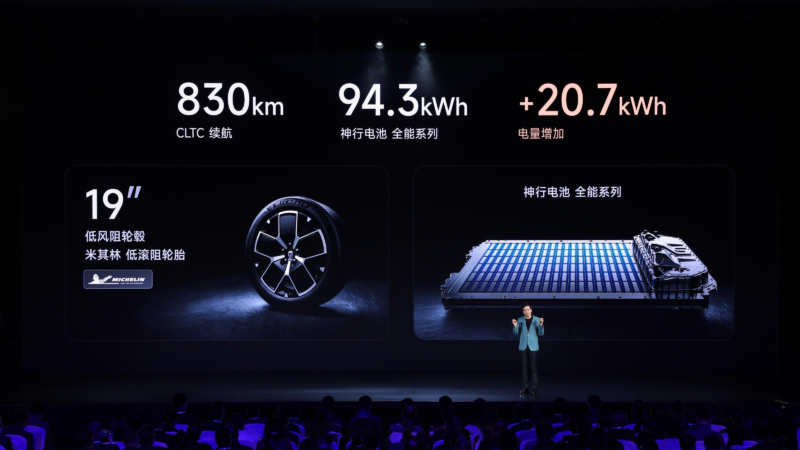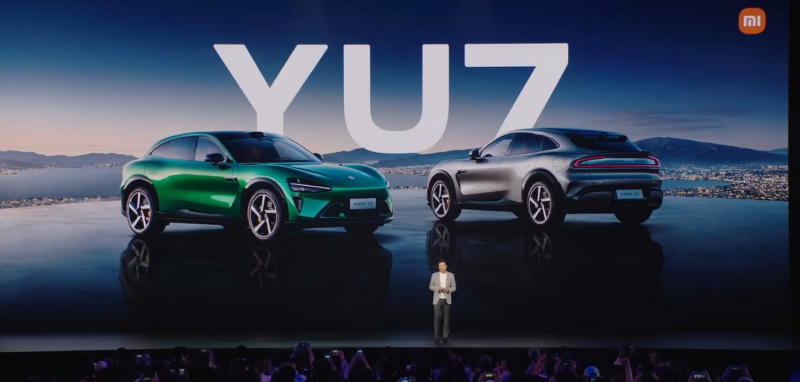Xiaomi’s hit YU7 SUV launch omits any mention of battery supplier CATL
On June 26, 2025, Xiaomi launched its highly anticipated YU7 SUV, securing nearly 289,000 orders in just one hour. However, industry observers noted something peculiar about the presentation: Although all the YU7 models use CATL batteries, Xiaomi made no mention of it, this is vastly different from the previous SU7 launch event, when Xiaomi highlighted the inclusion of CATL batteries as one of its main selling points.
The YU7 comes in three versions: a rear-wheel-drive Standard edition and all-wheel-drive Pro edition, both featuring 96.3 kWh LFP batteries with CLTC ranges of 835 km and 770 km respectively; and an all-wheel-drive Max version with a 101.7 kWh ternary battery delivering 760km range.
According to automotive industry sources, Xiaomi’s silence regarding CATL may stem from two factors. First, information about CATL only appeared in Xiaomi Auto’s Ministry of Industry and Information Technology filings in May. At the time of the launch event, the national standard (GB 38031-2025) certification had not yet been received. More significantly, Xiaomi appears to be strategically downplaying the CATL brand to maintain flexibility in future cost reduction efforts.
The Max version of YU7 utilises CATL’s second-generation Qilin battery, featuring a 5.2C maximum charging rate. Meanwhile, the Standard and Pro versions utilise a combination of batteries from two suppliers: BYD’s Blade batteries and CATL’s Shenxing batteries, both of which have identical 96.3 kWh capacity and weight specifications.

What makes this arrangement interesting is that while Xiaomi advertises a 21-minute charging time (10-80%) for the Standard and Pro models, vehicles equipped with CATL’s Shenxing batteries may charge faster. Some consumers who receive YU7 models equipped with CATL batteries may experience faster charging speeds than officially advertised—a pleasant surprise.
By May 2025, Xiaomi had become CATL’s largest automotive battery customer, accounting for nearly 10% of its shipments.
In the industry, CATL’s batteries are typically 10% pricier than those of its rivals, which poses a considerable expense for Xiaomi. To manage costs while maintaining performance, Xiaomi has diversified its battery suppliers, with reports suggesting that future models might incorporate batteries from other manufacturers, such as CALB and Sunwoda.
Source: Tencent



